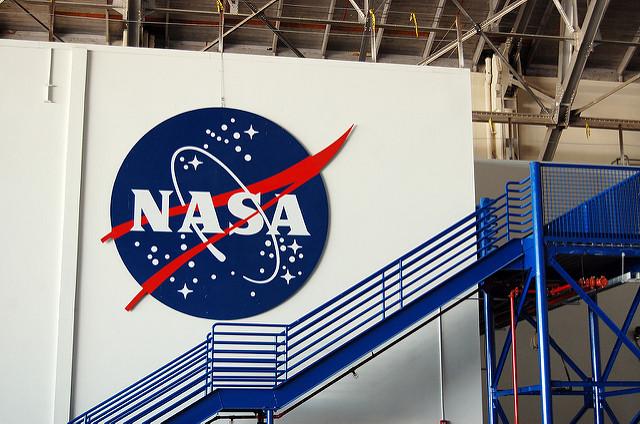
Sea State
What happens when you cross a tank with boat? You get a ‘tank boat’ of course! Indonesian defence firms PT Lundin and Pindad—in collaboration with Belgian firm CMI Defence and SAAB—presented a full scale mock-up of this odd combination at last week’s Indo Defence 2016 expo in Jakarta. The companies are currently undertaking a study to test whether the design, first shown in 2014, is feasible. However, this isn’t the first time someone has crossed a tank and a boat. The US Navy fitted some of its patrol boats and old landing craft with large calibre guns during the Vietnam War.
Problems continue to mount for the US Navy’s newest aircraft carrier. The USN announced last week that delivery of the USS Gerald R Ford, the lead ship of the USN’s new class of aircraft carriers, will be delayed until 2017. Issues with the ship’s main turbine generators, as well as worries about its new Advanced Arresting Gear, are responsible for the delays. The USN has garnered significant criticism for its handling of the construction of the ship, with the US Government Accountability Office stating in 2015 that the issues stem from an acquisition culture that ‘encourages undue optimism about program risks and costs‘.
Flight Path
Russia is expecting a new engine for its Sukhoi T-50 PAK-FA fifth generation stealth fighter, according to recent reports. The PAK-FA is currently powered by an NPO Saturn AL-41F1S (Izdeliye 117) engine. The new engines—‘Izdeliye 30’—will realise the full potential of the PAK-FA airframe by increasing thrust from 14.5 tonnes to between 15 and 20 tonnes. The new engine is said to offer performance comparable to the Lockheed Martin F-22 Raptor—flying without afterburner at speeds exceeding Mach 1.5, with a maximum speed greater than Mach 2.0 at altitudes of 60,000ft. Testing of the new engines will commence late 2017 and it’s expected to be deployed between 2018 and 2020.
China has finally provided the public a sneak peek of its J-20 stealth fighter at the Airshow China 2016 Exhibition, in Zhuhai, Guangdong province last week. But the purported fifth generation fighter made only a timid cameo appearance, raising more questions than answers. The J-20’s debut seemed to visibly disappoint onlookers after failing to complete a full flight routine. Though most of what goes on under the hood of the J-20 seems to remains a mystery, Beijing hopes the fighter will help close China’s military technology gap with the US. Take a glimpse of its debut here.
Rapid Fire
The commander of US forces in South Korea announced on Friday that the US will deploy an advanced missile defence system in South Korea in 8–10 months. Discussions between Seoul and Washington over the deployment of a Terminal High Altitude Area Defense System (THAAD) on the Korean peninsula began in earnest following North Korea’s nuclear test and satellite launch earlier this year. THAAD provides a long-range ballistic-missile interception capability to complement South Korea’s short-range Patriot missiles. The move has drawn the ire of China, which perceives THAAD’s deployment as a US ploy to undermine China’s strategic position in the region. ASPI’s Rod Lyon rejects the notion; read his analysis here.
The Syria Democratic Force (SDF) announced the start of their campaign to liberate Raqqa, Islamic State’s de facto capital in Syria last Sunday. Officials confirmed the beginning of the offensive, involving 30,000 fighters from the coalition of Kurdish, Arab and Christian forces. The announcement may stoke a rift in the anti-ISIS alliance; while the US views the SDF as a crucial ally in re-taking Raqqa, Turkey objects to the dominance of the Kurdish YPG within the coalition and the SDF rejects a Turkish role in the operation.
Zero Gravity
NASA has developed a Navcube to test x-ray communications and high accuracy GPS navigation in space. The navigation device will improve the accuracy of spacecraft on-board autonomous positioning, navigation, and timing. The cube also combines an x-ray source (MXS) rapid fire pulse technology that will be used to experiment with the transmission of gigabits of data between spacecraft and earth, and with measuring distance using x-rays. The hope is that the Navcube will assist in NASA’s Magnetospheric Multi-Scale Mission and provide better communications for future deep space missions.
China successfully launched a Long March-5 rocket from the Wenchang Satellite Launch Center on Hainan Island on 3 November. The new launcher can lift twice as much as previous Chinese designs, and is comparable with the United Launch Alliance’s Delta 4-Heavy rocket.
FEMA and NASA have come together to hold an emergency planning exercise on near earth asteroids. ‘It’s not a matter of if, but when, we will deal with such a situation’, said Thomas Zurbuchen, NASA’s Science Mission Directorate’s new associate administrator. The exercise, held in El Segundo, California, ran calculations of the potential impacts on infrastructure, population displacement and evacuation based on asteroid trajectories. The exercise was designed to establish how emergency services on earth could respond to a transnational asteroid threat.